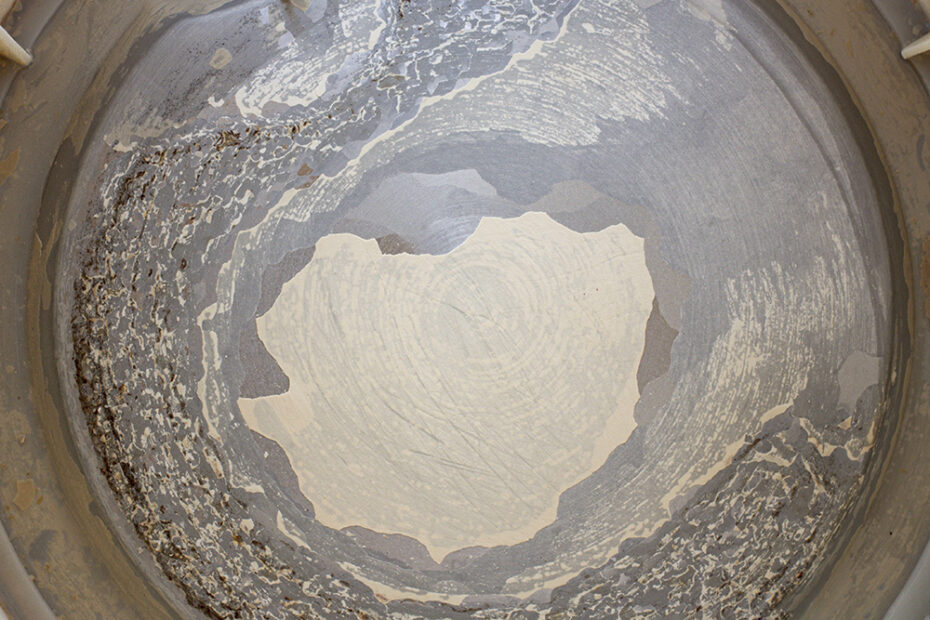The most common water problem developed in steam boiler operations is scale. This involves deposits formed by the precipitation of dissolved solids. The precipitate, along with other suspended solids, is laid down on the metal and heat transfer surfaces as deposit or scale.
Types of Boiler Scale—
Normally, a boiler scale will consist of a combination of several chemical compounds or impurities with one ingredient making up the bulk of the deposit. Hence, it would be extremely rare to encounter a “pure” calcium carbonate, or “pure” calcium sulfate deposit. More often, the deposit will consist of various calcium and magnesium deposits plus lesser amounts of organic matter, iron oxide, silica, etc.
Some more common types of boiler scale:
- Calcium Carbonate CaCO-3
- Calcium Sulfate CaSO-4
- Calcium Silicate CaSiO-3
- Magnesium Phosphate Mg-3 (PO-4)2
- Iron Oxide Fe2O3, Fe304, FeO
Boiler deposits can indicate the presence of calcium phosphate, magnesium hydroxide or magnesium silicate, depending on the type of water treatment used and the amount of anions and cations present.
Water Treatment Programs
Treatment programs offer wide flexibility in that boiler water treatment can be achieved through precipitating, sequestering or chelating programs.
- Precipitating Program– basically allows for precipitation of calcium as a carbonate or phosphate and the magnesium hardness as a hydroxide or silicate. Sludge conditioning is required to prevent the precipitations from adhering to the heat transfer surfaces.
- Sequestering Program– creates a chemical reaction within the boiler water to sequester calcium hardness and disperse iron. Sludge conditioning is required to provide dispersions should upset occur.
- Chelating Program– utilizing chelating agents for preventing the usual chemical reactions of calcium and magnesium hardness in scale formation. Chelating agents have been particularly effective in removal of existing scale deposits. Separate iron conditioning is required using organic sludge conditioning.
In total, a balanced or total boiler water treatment program will achieve these objectives:
- Sufficient alkalinity must be maintained for proper chemical action and to eliminate acidic corrosion.
- Through the use of sludge conditioners, suspended solids formed, or present will be non-adhering.
- Suitable oxygen scavengers will remove dissolved oxygen and minimize putting and/or film forming ingredients will be present to provide a protective film on metal surfaces to inhibit corrosion or pitting.
This article was originally featured in the December 1990 issue of The National Engineer, presented by Pennsylvania Chapter 18.
If you have your own expertise you’d like to share with our readers, please email jeannette@powerengineers.com to be featured on our blog.
